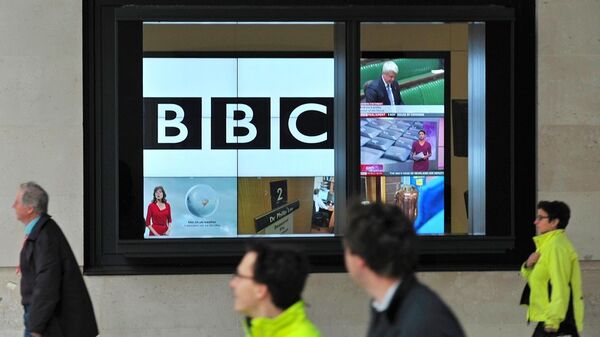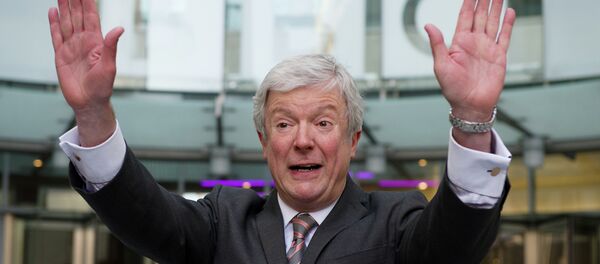Now however, the BBC has finally admitted candidates were scrutinized from its very inception until well into the 1990s at least.
Acceptable in the 30s
In 1933, BBC executive Colonel Alan Dawnay began holding private meetings with MI5 chief Sir Vernon Kell — both were concerned about "communist activities" in the UK, and wished to prevent subversive elements gaining footholds in influential British institutions. By 1935, it had been agreed MI5 would vet all new staff bar cleaners, to prevent "the way [being] made clear for a left-wing government" in the UK.
The policy was kept totally secret — and despite some BBC executives apparently angsting over the "deceptive" statements they were compelled to make to shroud its existence (even MPs and ministers were lied to on the issue), the Corporation was opposed to reducing the scale and scope of the vetting.
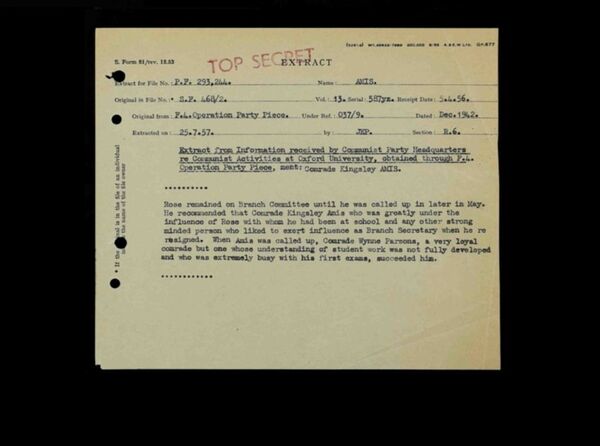
Applicants didn't even need to be a member of certain political groups to be precluded from employment with the BBC — tangential associations (a friend of a relative being a member, for instance) was sufficient.
Merry Christmas!
In theory, no Category A candidate should ever have been employed by the BBC, though some did permeate the ranks of the organization one way or another. In cases where employees subsequently came under suspicion of subversive inclinations or connections, a Christmas tree was drawn on their personal file.
Such employees were generally precluded from promotions and internal transfers — and if these individuals ever took their grievances about being passed over for either to an Industrial Tribunal, the insignia were removed from their files.
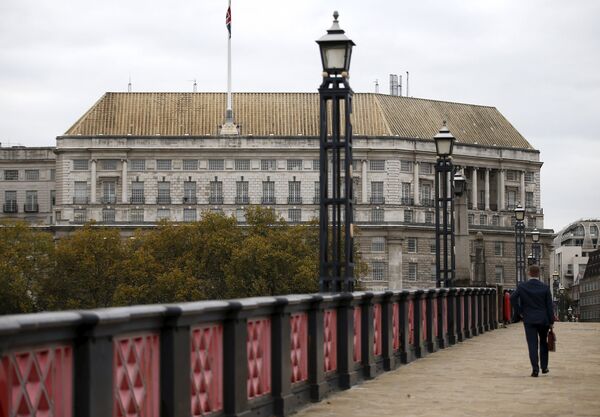
An 1968 interview given by BBC director general Sir Hugh Greene to The Sunday Times demonstrates the wall of silence shielding the policy from public view. In the interview, he said the BBC employed "people of all descriptions", including communists — but who was on the payroll was "none of [his] business", and the state broadcaster didn't "conduct an inquisition on people who join[ed]."
This was an outright lie — and files reveal Greene's strategy for the dealing with the interview was in fact formulated by MI5 itself. Moreover, the BBC's press division had even suggested Greene use the interview to reveal the policy and announce its renunciation — but MI5 were steadfastly opposed to both suggestions, making clear "no direct admission of vetting should be made". If pressed, the BBC could admit "something of this sort" was carried out "in relation to War Planning purposes [and] where aliens were concerned" — although MI5 preferred that "as little reference should be made to this subject as possible".
Greene proved entirely receptive to MI5's insistence on silence — after all, he was an ardent supporter of vetting, and had resisted internal and external pressure to end or even weaken the policy.
Conspiracy Exposed
In December 1979, a BBC broadcasting administrator named Hugh Pierce wrote a 10-page report on the vetting policy. Highly critical, it suggested the BBC "abandon forthwith" the wholesale vetting of applicants, limiting it only to the most sensitive areas of the BBC at the absolute most. Moreover, he warned public exposure of the practice would result in widespread "ridicule and vilification".
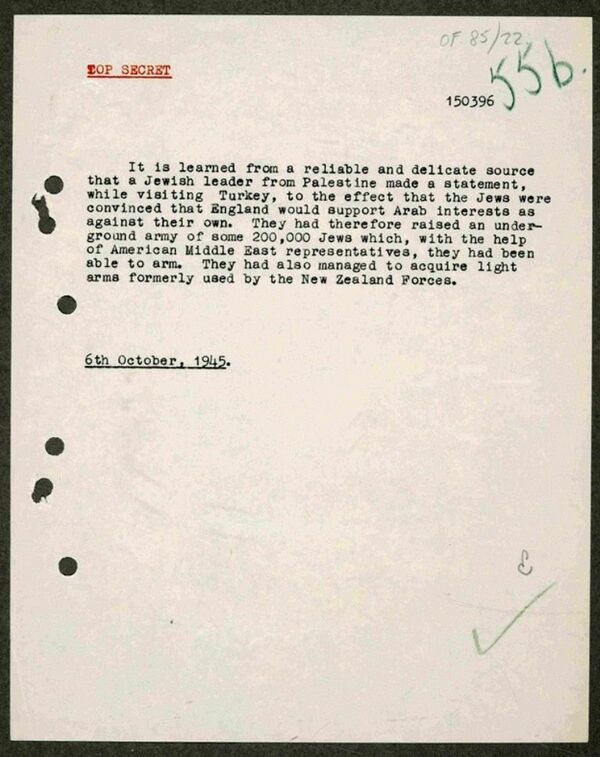
However, later that year, the vetting policy was exposed in the Observer newspaper. It recounted many instances of reputations and careers being derailed, if not outright destroyed, due to stringent MI5 oversight. For instance, in 1969 film director John Goldschmidt was commissioned to make a film for the BBC Omnibus series about the occupation by students of Hornsey Art College. However, during filming he discovered police had been checking the details of a car he'd hired and had also been watching his house — and without warning or explanation, the BBC canceled the film without explanation.
Two years later the BBC once again asked him to make a film, but once again when filming started he was stopped from working, an embarrassed executive telling him he "[wasn't] allowed to work here." It was subsequently revealed to him he'd blacklisted from the BBC by MI5 for taking part in an exchange of students between his art college and a Czech film school, spending a few weeks in Czechoslovakia in the process. He was not a Communist and never had been.
Another vetting victim was Isabel Hilton, refused a job by BBC Scotland in 1976 because she spoke Chinese and had crossed paths with a member of the Communist Party while at Edinburgh University at her alma mater's Scottish China Association.
However, Alastair Hetherington, a BBC executive who wanted to employ Hilton, refused to accept it, and protested to all and sundry at the BBC. It was later revealed to Hetherington MI5 had made a clerical error, mistaking the SCA for Maoist group SACU (the Society for Anglo-Chinese Understanding).
Following Hetherington's interventions, Hilton was offered the job, but the delay had inspired her to look for work elsewhere. Nonetheless, she did eventually work for the BBC, presenting World Tonight on Radio 4 in the 1990s, and Radio 3 arts program Night Waves. She would receive an OBE (Order of the British Empire) in 2009 for her journalism.
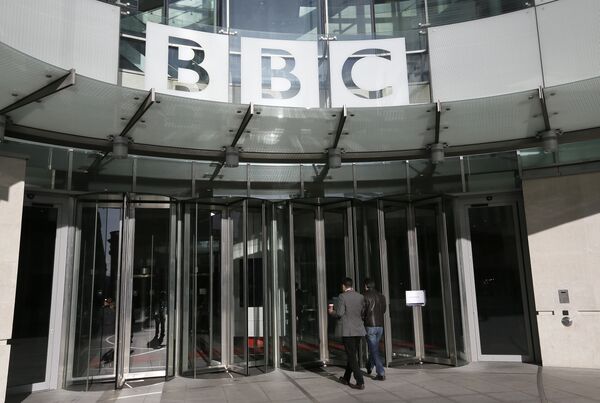
These transgressions caused him to be sacked in 1972, told no department was prepared to offer him work — despite many BBC divisions being extremely keen to use his talents. He went on to enjoy a successful career as a writer of plays and children's books.
Politics, Not Security
"What do the BBC and MI5 achieve from their secret blackballing? The system is clumsy, dishonest and often very unfair. Whereas government vetting of civil servants is officially acknowledged and those who fail vetting are informed of the fact, the BBC method is secret, allowing no appeal-with often damaging injustice to individuals and careers…even if the system were cleaned up and acknowledged, it would only hamper the activities of those whose radical opinions are above board. Real 'moles' — if they exist — are buried too deep to be discerned by such an inaccurate and incompetent vetting procedure," the Observer concluded.
The newspaper's detailed exposures rendered standard denials redundant, so the BBC eventually acknowledged the system existed — although Michael Hodder, then-BBC liaison with MI5, was asked to shred the files. He disobeyed, instead dispatching them to the BBC Written Archives Center, where they lay dormant until the BBC's own disclosure.
Alasdair Milne, then director general of the BBC, was forced to make an embarrassing retraction, stating the policy was "one of those things one knew about, felt a bit grubby about" — months earlier, he'd publicly stated he couldn't believe allegations of a vetting system were true. Despite this, the official BBC line was only the corporation decided who to appoint to any post, or whether to invoke the vetting procedure, and no external agency had a right to veto the appointment or promotion of any member of staff.
Such claims were totally false — MI5's recommendation were in fact final, and when Hetherington battled for Hilton's application, he was told challenging rulings was "without precedent".
The true nature of corporation and its employees was established in the BBC's memorandum to the 1971 Franks Commission on the Official Secrets Act. The BBC referred to a ruling by the Treasury Solicitor in 1943 which said: "The official view is Governors of the BBC are persons holding office under His Majesty within the meaning of Section 2 of the 1911 Official Secrets Act and the Director-General and staff are persons employed under persons who hold such offices." This ruling clearly bound BBC staff as servants of the British state, with special obligations arising therefrom.
"If the BBC was honest about its role, it would admit it must support the central political authority by virtue of the State licence-fee system — but the Corporation has always had this fantasy about itself as a totally independent social organisation," Hood said.
Similarly, while the exposures shocked the public, John le Carre, best-selling spy novelist and former MI5 officer, was unsurprised.
"I've always assumed it [vetting] happened. I wonder what people would think if the reverse were to occur — if a member of the Militant Tendency turned out to be shaping news in the newsroom. There has to be some method of obtaining what we hope will be an objective middle way in reporting," he said.

